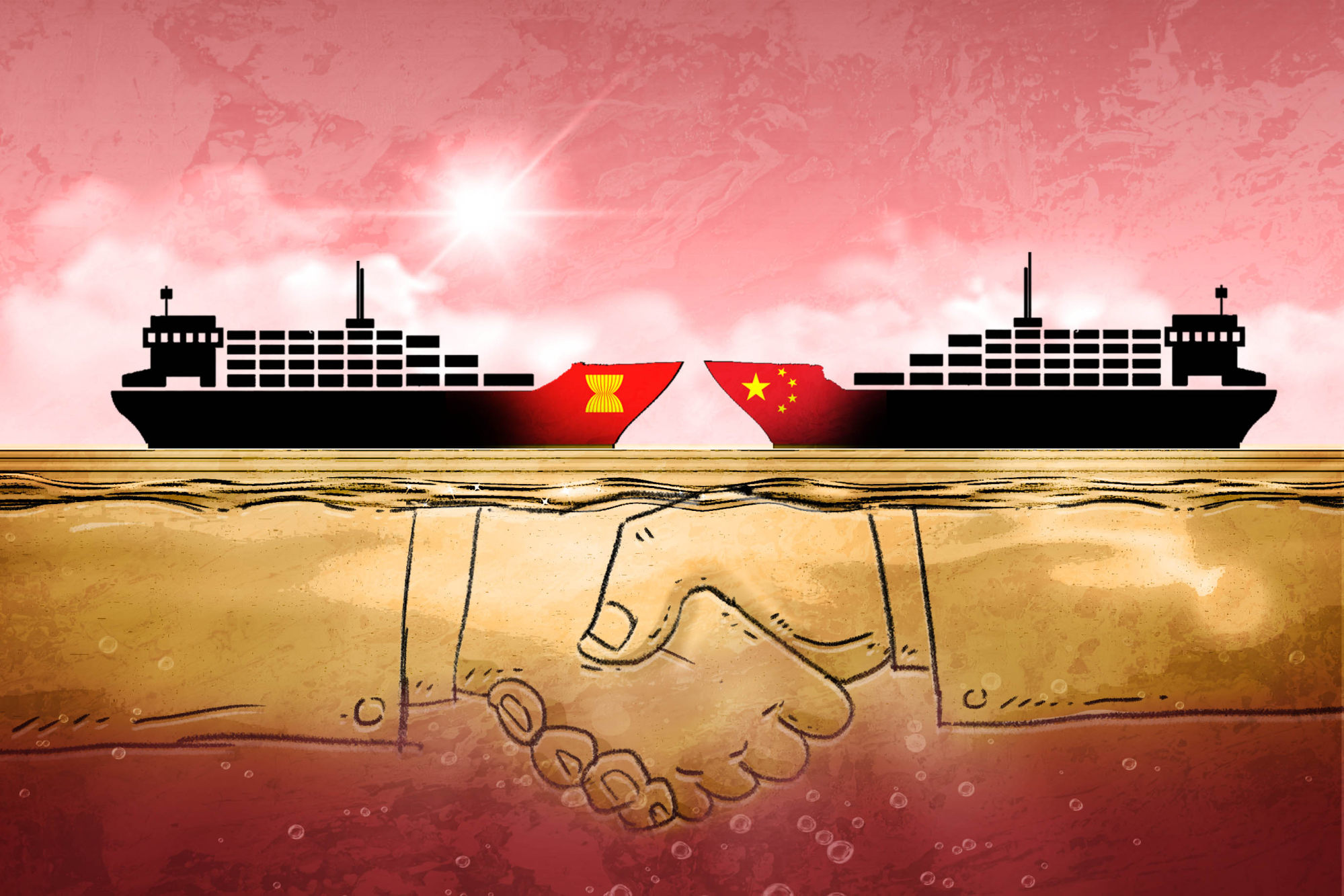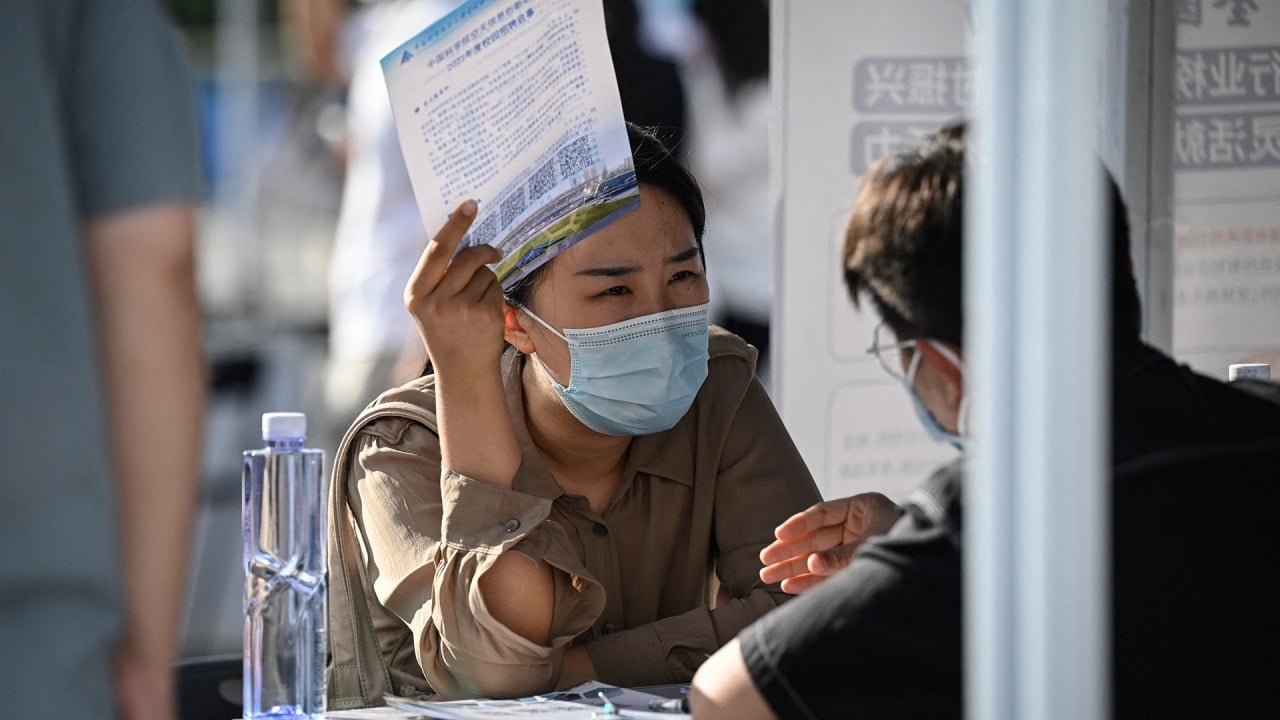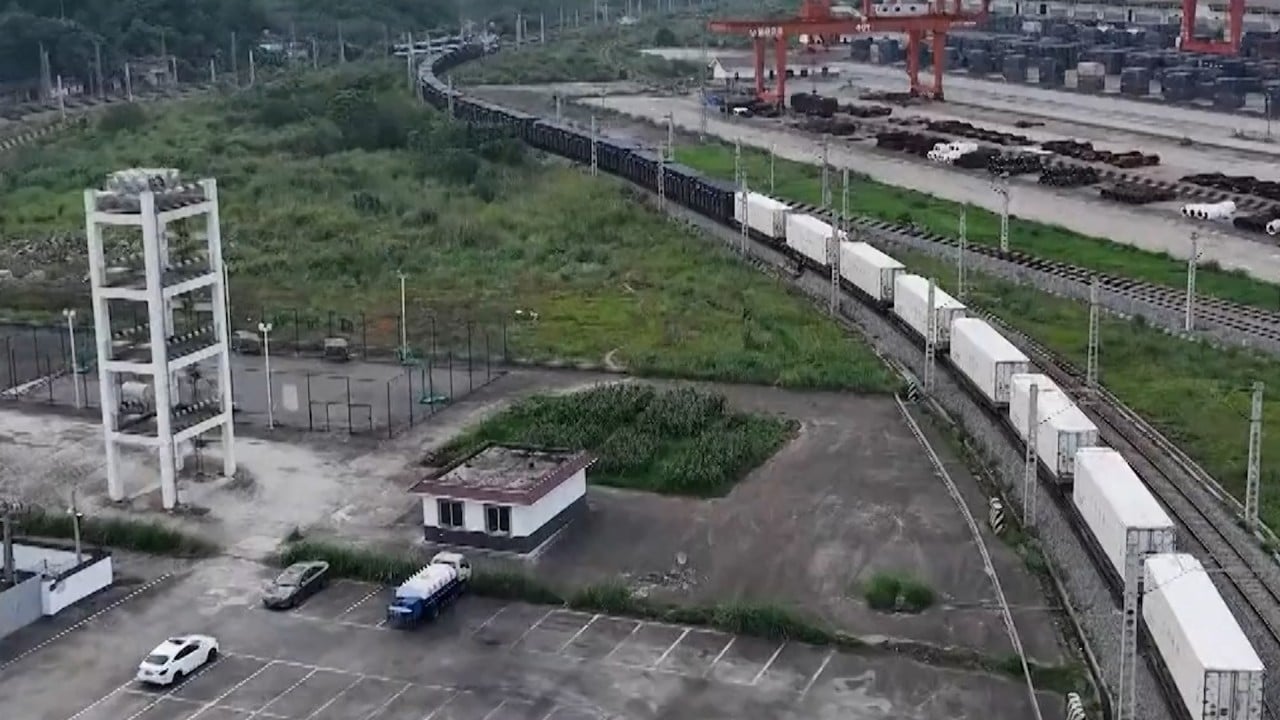Top China Economy Stories of 2023: Chinese Investors Rush to Sell Overseas Properties

2. China’s shipping containers pile up at overcrowded port as overseas orders dwindle
(Ji Siqi – February 20, 2023)
Although the Lunar New Year holiday ended weeks ago, not all truck drivers in Shenzhen are back to work. On the expressway heading towards Yantian International Container Terminal, several trucks with no containers on their long trailers can be seen parked on the roadside, part of a static convoy that stretches nearly a kilometre (0.62 miles).
“These are only a small portion [of all the empty trucks]. The rest had to be parked in Dongguan,” said a driver surnamed Huang, referring to another city in Guangdong that is an hour drive away from Yantian – one of the biggest Chinese container ports for foreign trade.
Huang is one of the lucky drivers. He had just unloaded a container at the terminal on a Friday afternoon. He said the port has more than 15,000 registered truck drivers, but only around 2,000 of them now have work.
3. China’s bid to lure overseas tech talent home hits a snag: the sector’s toxic work culture
(Ji Siqi – February 19, 2023)
After being caught up in a mass lay-off at Amazon in January, Canada-based software engineer Mark Liu boarded a flight back to his hometown in central China.
The 30-year-old decided to take a rest at home and spend some time with his parents and grandparents, while preparing to look for a new job. But he will not be looking in China.
Liu is still seeking opportunities in Canada, even though the current wave of tech lay-offs there shows no sign of ending.
4. China’s durian demand is a godsend for Philippine trade, but for other Asian countries ‘durian diplomacy’ raises concerns
(Ji Siqi, Ralph Jennings, He Huifeng– February 15, 2023)

More than 900km southeast of Manila, Davao City is dubbed “Durian Capital of the Philippines”. With the volcanic soil of Mount Apo said to give the pungent “king of fruit” a unique flavour, the region accounts for almost 80 per cent of all durians grown in the country.
But now, even the local durian market in Davao is in short supply, as large amounts of the existing harvests have been reserved for China.
It all began with a new bilateral agreement signed between the two countries in early January, following the state visit of Philippine President Ferdinand Marcos Jnr to Beijing, which opened China’s door to fresh Philippine durians for the first time.
5. How are Chinese firms responding as foreign buyers ‘don’t want anything made in China’?
(He Huifeng, Luna Sun, Kandy Wong – May 25, 2023)

The writing is on the wall when it comes to the future of Norman Cheng’s operations in China, and like the protection offered by helmets his company produces, he sees a shift away from China as a matter of self-preservation.
To that end, he intends to open a smart factory in Vietnam next year – a US$30 million undertaking that embraces automation and will essentially be a replica of the plant he opened just last month in the southern Chinese manufacturing hub of Guangdong province.
The decision by one of the world’s largest helmet makers, Strategic Sports, was a long time in the making, and it was not borne out of capacity concerns. Cheng says they have plenty of that in China, where their first automation plant went into operation two years ago, capable of producing millions more helmets a year.
6. Thailand wants to build a brand new shipping route. Why isn’t China buying?
(Frank Chen, Kandy Wong – November 27, 2023)

When Beijing goes on the hunt for weak links in its economic chain, the Malacca Strait is a place Chinese officials and academics often cite as a point of exceptional vulnerability. Many essential materials – particularly crude oil and minerals, which carry vast strategic importance – are shipped through it.
The latest option to come across Beijing’s desk is the Land Bridge project in Thailand, which uses rail links to connect the Andaman Sea and the Gulf of Thailand and bypass Malacca entirely.
7. China to widen Asean trade with first major waterway in 700 years, but will Pinglu Canal be a game changer or white elephant?
(He Huifeng– July 24, 2023)

Chinese authorities like building roads and bridges from times gone by, as connectivity facilitates flows of people, goods and also fortune. But only a few can afford to construct canals that demand massive amounts of labour and mastery of technology.
Over 2,200 years ago during the Qin dynasty, China’s first emperor built the 36.4km (22.6 mile) Lingqu Canal to carry soldiers to conquer the southern tribes and expand the imperial territory.
Qin Shi Huang’s mega project connected Xiang River in Hunan province – a tributary of the 6,300km (3,915-mile) Yangtze River – and Li River in south China’s Guangxi Zhuang autonomous region.
8. Could China’s durian-farming ambitions end up testing Thai and Malaysian market dominance?
(Ralph Jennings, Mia Nulimaimaiti – May 22, 2023)
Malaysian durian expert Lim Chin Khee visits China every two months to help farmers grow the pungent tropical fruit.
Among the advice that the founder of the Durian Academy, near Kuala Lumpur, dispenses to growers of plantations larger than 404 hectares (1,000 acres) is to avoid wasting water and fertiliser.
Malaysia, meanwhile, exports high-end frozen durians from smaller farms to China, a rapidly expanding tropical fruit market for much of Southeast Asia.
9. Tech war: starved of chips, China’s bid to topple US as No 1 economy faces ‘unprecedented’ pressure
(Frank Tang, Ji Siqi – February 8, 2023)

Semiconductor chips are often compared to the beating heart driving technology innovation. But with the United States restricting exports of critical semiconductor components and technology to China, questions are mounting over how long the world’s second-largest economy can maintain a pulse.
Core technologies are China’s Achilles’ heel, despite having the world’s strongest industrial manufacturing capability, and they are easy prey for Washington in its strategy of tech containment.
Without mastery of the fiendishly complex chips that power everything from cars to smartphones, President Xi Jinping’s hopes of transforming China into the pre-eminent global digital power, while surpassing the US to become the No 1 economy in the world, could fall apart.
10. China’s home-grown C919 could break Airbus, Boeing duopoly with ‘brave step into foreign markets’
(Amanda Lee– January 18, 2023)
China’s home-grown narrowbody passenger jet could break the duopoly of Boeing and Airbus in its home market and beyond, despite its reliance on foreign parts, according to a report by a Berlin-based think tank.
The Mercator Institute for China Studies (Merics) argued that the size of China’s aviation market, strong industrial policy and a sector dominated by state-owned companies give the C919 an edge to advance the country’s “strategic objectives” in aviation.
(The following story may or may not have been edited by NEUSCORP.COM and was generated automatically from a Syndicated Feed. NEUSCORP.COM also bears no responsibility or liability for the content.)






